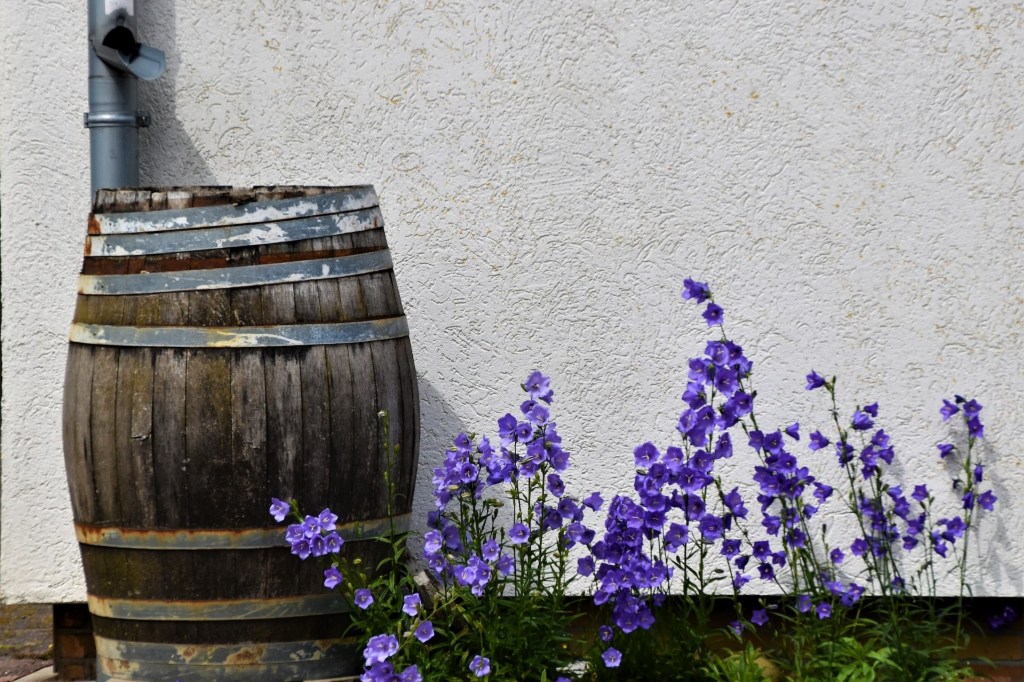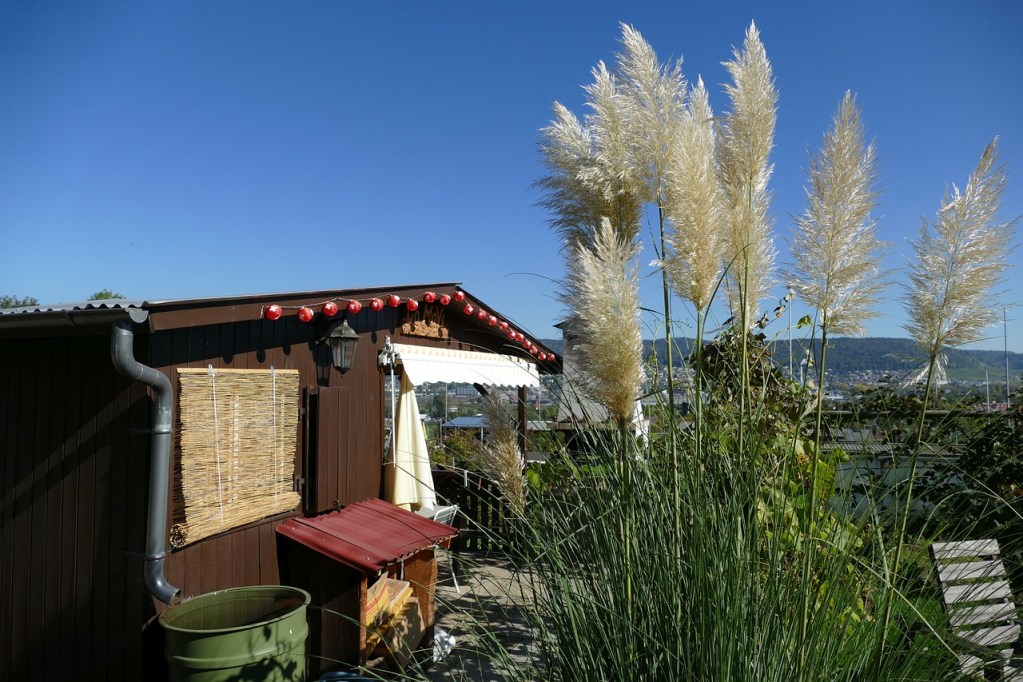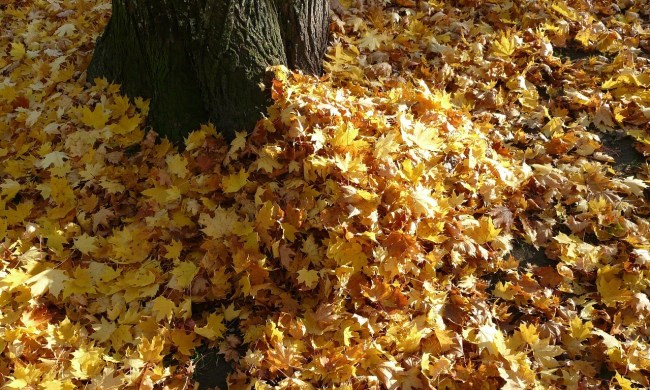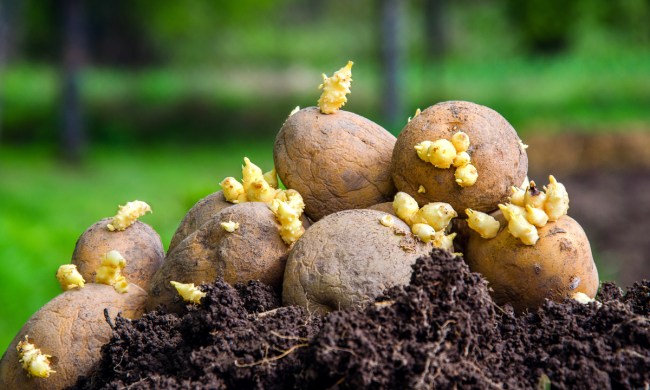
Gardening is a soothing hobby, but it can also put stress on your wallet. While many gardening practices are meant to help you save money by growing your own food, all those plants still need to be watered, leading to a higher water bill. You can lessen it by growing a drought-tolerant garden, but what if the plants you want to grow simply aren’t the drought-tolerant types?
Installing a rain barrel and collecting rainwater for later use is an easy way to water your garden without impacting your wallet. Here’s how to get started!

What are the benefits of a rain barrel?
Rain barrels aid in water conservation efforts, since you’re using stored rainwater rather than tap water. This lowers your water bill, but it’s also good for the environment. Tap water comes from lakes, rivers, groundwater, and reservoirs, which can drain quickly during a drought.
Using rainwater relieves stress on these water systems. Rain barrels require no electricity or chemicals, so they’re eco-friendly, and they allow you to care for plants in droughts.

How to set up a rain barrel
There are a few different kinds of rain barrels and rainwater collection systems, but here is how to set up the simplest one:
Step 1: Choose a large, solid barrel.
Plastic barrels are popular, as they are lightweight, easy to find, less expensive, and easy to modify. You can also find a barrel specifically made to be a rainwater barrel at many hardware or home improvement stores.
Step 2: Add a lid and a spigot or tap on your barrel.
Lids help keep mosquitoes and debris out and can be a screen or solid type. A spigot or tap helps you fill buckets more easily for watering cans. However, you can always choose to remove the lid and fill your containers by dipping them instead.
Step 3: Choose a location with relatively flat ground that is in front of a downspout and that is near where you will be using the water.
Step 4: Elevate the rain barrel using bricks, flat stones, or cinder blocks.
This gives the barrel stability, helps with water pressure, and gives you easier access to the collected water. Make sure the rain barrel is as close to the downspout as possible.
Step 5: Measure where the rain barrel comes to on the downspout, marking the place.
Step 6: Cut the downspout where you marked using a saw, removing everything below the mark.
Don’t discard the section you remove! When the rain barrel isn’t in use, you can replace it to keep the downspout functional.
Step 7: Attach a flexible elbow to the downspout, angling it to direct water into the rain barrel.
Rain barrels are useful tools that help you conserve water. Whether your interest is in reducing your water bill, helping your garden through a drought, being more eco-friendly, or a mixture of all three, setting up a rain barrel can help. This relatively simple tool can have a big impact!



